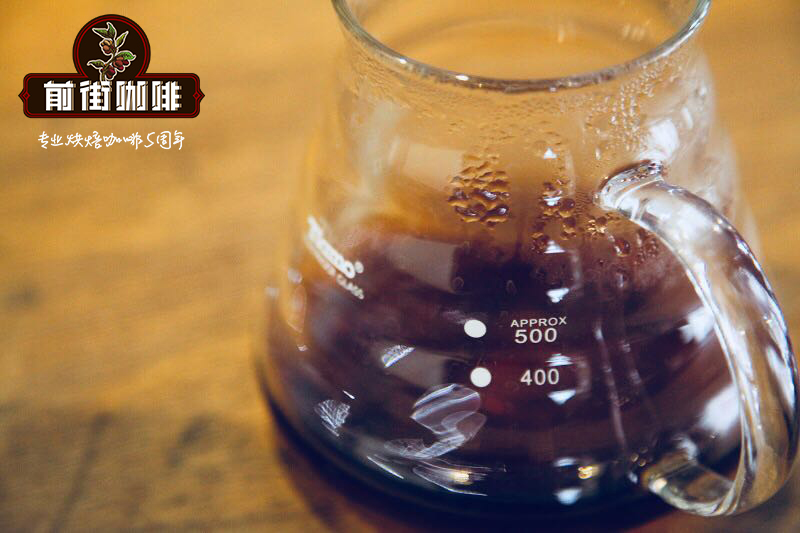Introduction to the Coffee Story of Suke Quto Farm in Ethiopia. Is the coffee good?

Professional coffee knowledge exchange more coffee bean information please follow the coffee workshop (Wechat official account cafe_style)
Suke Quto Farm
After a forest fire, Tesfaye founded Suke Quto Farm, which is currently certified by the Organic and Rainforest Alliance, in a desire to protect the forest. It is possible to protect forests by distributing coffee and shade saplings in local communities. He recruited 150 outsiders and replanted the forest. With this idea in mind, Tesfaye realized his dream through Suke Quto Farm: to develop environmentally friendly coffee and maintain the local community with a steady income. Local small farmers harvest organic coffee and send it to Suke Quto farm for processing.
Tesfaye Bekele is the founder of Guji Coffee. When Guji focused on cattle farmers, he looked for new ways to make coffee more popular in Guji. "I don't think of myself as a coffee farmer. Because coffee is everything to me, it's not just a job. All my time and energy is devoted to the beans I harvest and process. Tesfaye Bekele explained.
"I come from a coffee-producing family, so I started to get in touch with coffee very early in my childhood. At first, I was not interested in coffee. "Tesfaye goes on and on." the work is hard and the days are long. But a few years later, I found myself in love with coffee. This was after I finished my studies, when I went back to my Shakiso woreda home in Guji. "
After graduating from Tesfaye, he began to work on natural resources and environmental protection in the Ethiopian government. "I was assigned to Guji and Borena (south of Guji). At that time, Guji and Borena were a large administrative region. The area now known as Guji is threatened by forest fires that have raged for three years in a row; from 1997 to 1999. The cause of the fire is often unknown, and Guji has lost a lot of forests.
"after the fire, the locals returned to the land and converted the land into farmland, such as growing moss bran and corn. As a responsible government official in the region, Tesfaye realized that he could not stop these people from returning to the land where Guji had been cut down. He needs to give people a choice. "my idea is to replant forests and increase coffee trees to increase diversity. The local community agreed, but they asked me to provide coffee saplings. "
Tesfaye took on the task of distributing a large number of coffee saplings in the community. He rented a big truck and began to divide the saplings equally. People began to ask me how long it would take for this crop to produce cherries. I replied, 'four or five years later,' they returned the seedlings to me. " Disappointed with the local community, Tesfaye reserved a piece of land with government money to prove that his idea was an effective and healthier alternative crop, distinct from other crops.
Tesfaye appointed several managers to ignore his field of training, but they all found the job unattractive because it had been fruitless for years. He couldn't find anyone who was willing to continue his life, so he quit to become a coffee farmer. After his first harvest, the community that refused to grow coffee returned to Tesfaye. "at first, they ran away, but then they came back and asked me to provide coffee saplings. I'm very proud of this idea, because all the farms you see in Guji today are inspired by Suke Quto Farm. "Tesfaye is the innovative force of Guji.
Technical information
Regional Guji
Variety Kurume, Welicho
Certified organic, rainforest alliance
Altitude 1800-2200masl.
Treatment water washing, sun exposure
Flavor description
Flowers
Lemon
Peach
Important Notice :
前街咖啡 FrontStreet Coffee has moved to new addredd:
FrontStreet Coffee Address: 315,Donghua East Road,GuangZhou
Tel:020 38364473
- Prev

Ethiopian ancient geisha Shakisso farm coffee story introduces how to drink ancient geisha coffee
For more information about coffee beans, please follow Coffee Workshop (Wechat official account cafe_style) Shakisso Farm Shakisso Farm is located in the Guji district of southern Oromia, one of the largest regions in Ethiopia. The farm, founded by Hailaiebury, has been producing organic coffee since 2001 and has now passed the Organic Rainforest Alliance and American Fairness.
- Next

Is the coffee good at the Reko washing station in Ethiopia? Yega Xuefei coffee taste description
Professional coffee knowledge exchange more coffee bean information please follow the coffee workshop (Wechat official account cafe_style) Reko washing station Reko washing station is named after Reko Mountain, a tall and thin mountain, towering over the mountains of Kochere. Reko, it translates to challenge. It refers to the challenge of climbing Mount Rico. Masreshu (the creation of Testi Coffee
Related
- Does Rose Summer choose Blue, Green or Red? Detailed explanation of Rose Summer Coffee plots and Classification in Panamanian Jade Manor
- What is the difference between the origin, producing area, processing plant, cooperative and manor of coffee beans?
- How fine does the espresso powder fit? how to grind the espresso?
- Sca coffee roasting degree color card coffee roasting degree 8 roasting color values what do you mean?
- The practice of lattes: how to make lattes at home
- Introduction to Indonesian Fine Coffee beans-- Java Coffee producing area of Indonesian Arabica Coffee
- How much will the flavor of light and medium roasted rose summer be expressed? What baking level is rose summer suitable for?
- Introduction to the characteristics of washing, sun-drying or wet-planing coffee commonly used in Mantenin, Indonesia
- Price characteristics of Arabica Coffee Bean Starbucks introduction to Manning Coffee Bean Taste producing area Variety Manor
- What is the authentic Yega flavor? What are the flavor characteristics of the really excellent Yejasuffi coffee beans?

